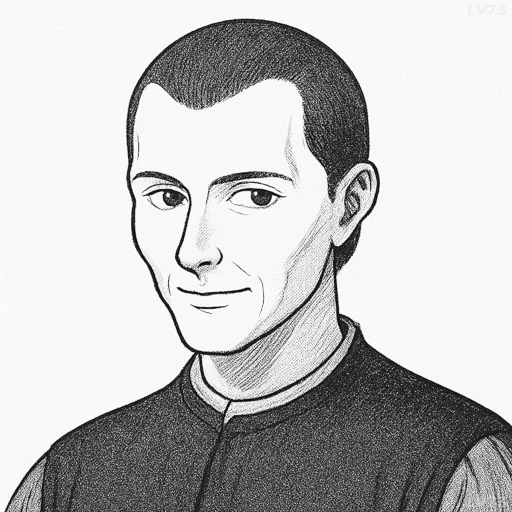“One change always leaves the way open for the establishment of others.”

- May 3, 1469 – June 21, 1527
- Born in the Republic of Florence (Italy)
- Political thinker and diplomat
table of contents
Quote
“One change always leaves the way open for the establishment of others.”
Explanation
In this quote, Niccolò Machiavelli suggests that change is a catalyst for further changes, and that once a single transformation has been made, it often creates the conditions for additional modifications or shifts. When one aspect of a system, whether political, social, or personal, is altered, it disrupts the status quo and opens up new possibilities for further changes. This observation speaks to the momentum that change can create—once the door to transformation is opened, it can lead to a chain reaction of additional adjustments or reforms. Machiavelli implies that rulers or leaders who implement change must be aware that it is rarely a one-off process; one alteration often invites others, sometimes uncontrollably or unexpectedly.
Machiavelli’s understanding of change here reflects his realist view of power dynamics, where stability is constantly threatened by the forces of change, and the introduction of any reform or shift can lead to unintended consequences. In his political writings, he discusses the dangers of instability and the need for rulers to manage change carefully, as each reform or alteration to the system can create new opportunities for opposition or further upheaval. For example, a ruler who changes laws or social policies might find that these changes lead to additional demands from various factions, leading to further reform or even revolution if the situation is not handled carefully.
In the modern world, this principle applies to many aspects of life, particularly in politics, business, and society. For instance, in a political revolution, the overthrow of an old regime often creates the opportunity for further political shifts or social movements, sometimes leading to a cycle of instability or unintended consequences. In business, a company that implements a major change in strategy—whether it’s a shift in product focus or a change in leadership—often finds that this change opens the door for further adjustments, whether in corporate structure, marketing, or customer relations. Similarly, in personal development, making one significant change, such as adopting a new lifestyle or pursuing a new goal, can often lead to a cascade of other changes in one’s behavior, relationships, or perspective. Machiavelli’s quote serves as a reminder that change can be both a trigger and a precedent, leading to a series of ongoing transformations that may not always be fully predictable or controllable.
Would you like to share your impressions or related stories about this quote in the comments section?

